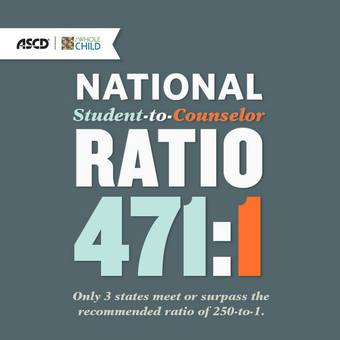|
During the first few weeks of the school year, I’ve noticed teachers in my elementary school reminding students of behavior expectations. I’ve also noticed some students having trouble meeting those expectations. In the past, schools may have been quick to suspend students who are disruptive, but new policies are asking schools to change their practices.
3 Comments
A lot of my students are on Instagram. Most start using social media around fifth grade. Whether it’s Instagram, Snapchat, or Vine, they’re posting their “outfits of the day” (#ootd), honest thoughts about others (#tbh or to be honest), and the more popular “selfies”. While some may see this as an obsession with technology, new research says today’s students are just more obsessed with themselves. And self-esteem-building activities may be to blame.
 Credit: Assoc. for Supervision and Curriculum Development Credit: Assoc. for Supervision and Curriculum Development Discussions about boosting high school and college graduation rates usually focus on standards, assessments, and teacher and leader development. In all this conversation, however, there’s rarely any talk about school counselors. First Lady Michelle Obama thinks that’s a mistake. If we're to reach the president's Northstar goal (to have the highest proportion of college graduates in the world by 2020), Mrs. Obama says schools and states must empower school counselors to help us get there. That’s why school counselors are a part of her Reach Higher Initiative, she told attendees at the American School Counselor Association (ASCA) conference earlier this month. “Teacher didn’t care, principal didn’t care… I told my counselor and a couple teachers, but I didn’t want to because they didn’t care…you know from the way they come at me on a regular basis… they don’t try to talk to me.” – Antonio, a student interviewed in Don’t Call Them Dropouts by GradNation Teachers, think about your most challenging student, your most disengaged student, or the student you just don’t know much about. Now, invite that student to your classroom for lunch and a game of Uno, listen without judgment, and let a relationship grow — because that relationship can mean the difference between graduate and a non-graduate. In 2010 I had my first run-in with HIV, the virus that can lead to AIDS. I was teaching in Lesotho, where 25 percent of the population had HIV and the average age of sexual activity began at 12 years. I desperately wanted to discuss HIV transmission and sexual health with my students, but I was told that I would lose my job if I did. So I upheld the social norms and kept quiet, but ever since, I’ve wrestled with the implications of my inaction.
School officials in Arkansas also found themselves face-to-face with HIV, though they were anything but inactive. Pea Ridge Public Schools banned three siblings because they’re believed to be HIV positive. The reason, they say, is to prevent other students from contracting the virus. What they don’t know is that banning HIV-positive students from school does not make their peers any less vulnerable to contracting the virus. Unlike a cough or a cold, HIV cannot be transmitted through the air, by touching a door handle, or even by sharing a glass. HIV is transmitted through very specific activities including unprotected sex and intravenous drug use. No one ever contracted HIV by sharing a ruler in math class. If Pea Ridge officials want to guard against the spread of HIV, they should teach students to practice safe sex. As a teacher, I was always impressed by the flood of resources devoted to meeting the non-academic needs of our students: Free and reduced-price meals aimed to make certain that no student had to try to learn while hungry. Dentists and eye doctors even hauled their equipment into our multi-purpose room to do on-site checkups for students. Still, too often, support for student mental health in K-12 schools remains overlooked, even though a new report finds that the vast majority of teachers see “social and emotional learning” (SEL) as “‘very’ or ‘fairly’ important for the in-school student experience.” Even more, these teachers say these skills are teachable and benefit students from all socioeconomic backgrounds.
However, the report, called The Missing Piece, comes up short in its prescriptions for change in a way that is broadly indicative of the shortcomings of our national conversation about mental health treatment in schools. |
aboutYEP-DC is a nonpartisan group of education professionals who work in research, policy, and practice – and even outside of education. The views expressed here are only those of the attributed author, not YEP-DC. This blog aims to provide a forum for our group’s varied opinions. It also serves as an opportunity for many more professionals in DC and beyond to participate in the ongoing education conversation. We hope you chime in, but we ask that you do so in a considerate, respectful manner. We reserve the right to modify or delete any content or comments. For any more information or for an opportunity to blog, contact us via one of the methods below. BloggersMONICA GRAY is co-founder & president of DreamWakers, an edtech nonprofit. She writes on education innovation and poverty. Archives
May 2017
Categories
All
|
| Search this site |
© Young Education Professionals. All rights reserved.
Logo designed by Aram Designs
Website created using Weebly
Logo designed by Aram Designs
Website created using Weebly

 RSS Feed
RSS Feed